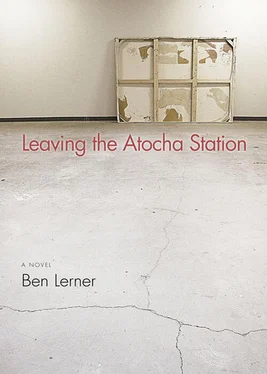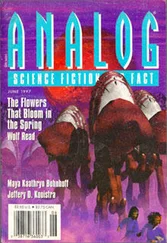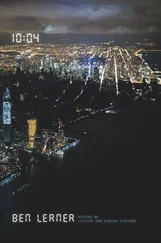__________________________
In the last phase of my research fireflies were disappearing. Bats were flying around confused in the middle of the day, colliding with each other, falling into little heaps. Bees were disappearing, maybe because of cell phone radiation, maybe because of perfume, maybe because of candy. It was the deadliest day since the invasion began. Unmanned drones made sorrowful noise overhead. It was 1933. The cities were polluted with light, the world warming. The seas were rising. The seas were closing over future readers. Confused trees were blooming early; you could view the pics from space online. It was 1066, 312. Why not let the children touch the paintings? You could see the hooded prisoners in orange jumpsuits behind the concertina wire. I was standing before The Descent, oil on oak, hash and caffeine; I hadn’t been there in a while and the blue was startling. 1936, 1492, 800, 1776. Meanwhile, life’s white machine. The great artist and the museum guard. Having nothing to say and saying it into a tiny phone. ¿Porqué nací entre espejos? I wondered if the guard in the Reina Sofía ever wore her necklace. Before the reading, I had a couple of hours to kill. Bajo el agua / siguen las palabras. I left the museum for the park.
It was a beautiful day, unseasonably cool, and the park was crowded; there were puppet shows and portraitists near El Estanque. The hash dealers were back, or reinforcements had arrived, milling around the trees. I found a bench and opened my chapbook; it was wonderfully made, its quality anachronistic, befitting a dead medium. Letterpressed on Italian paper, hand sewn. Arturo had printed a thousand copies. Teresa’s name only appeared on the front matter, as she had insisted. Arturo had invited everybody to the reading and celebration. I’d even agreed to forward the announcement to my entire inbox, although I only knew four or five people in Spain. I was wearing my suit. I’d received an e — mail María José sent out to all the fellows informing them about the event. Come celebrate a wonderful accomplishment, etc. For whatever reason, I wasn’t nervous. Maybe Elena López Portillo would attend and write an essay on my work. Maybe Isabel would bring Oscar, whom I imagined as Carlos. Teresa said her publisher was considering asking me for a book. Under the water / the words go on. I would have liked to kiss Rufina. Over the course of my research, I’d lost considerable weight. Other than that, I didn’t think I’d undergone much change.
It would cost a hundred euros to change an international ticket, less than a meal at Zalacaín. The museum guard, the bathroom attendant, the economic mode. I walked to the colonnade and listened to the drummers. The sun was just beginning to set, and the light had softened, but there would be some light until nearly ten. I sat and smoked and, for whatever reason, thought: Teresa should read the originals; I’ll read the translations. My accent, when I read, was good, much better, I didn’t know why, than when I spoke. I sat on the colonnade and read a poem or two aloud in Spanish; I didn’t hear an American accent.
I eventually made my way to the gallery, which I was pleased to see was overflowing. If I was nervous, it was only about the fact that I wasn’t nervous, which might mean something was wrong with me. I was greeted by various people: María José was surprisingly warm; we kissed each other without irony. One of the swimmers I had smoked with caught the corner of my mouth. I found Teresa, who looked stunning, and we kissed each other on the lips. She was wearing a dress that was probably satin, silver, very simple, but unmistakably expensive. We didn’t know many working people. I told her about my idea, that we’d swap parts in the reading, and although there were trace amounts of sadness in her smile, she agreed.
There was a bar and, to my surprise, a bartender. I asked him for white wine. While he was pouring my wine, Jorge approached me; he must have been in my inbox. We embraced each other warmly. He said something about how far my Spanish had come, about the fancy people I’d fallen in with, how he’d tell people in the future all about the famous poet he tutored and sold drugs to. I asked him if he could name a famous living poet. He couldn’t.
“Is Isabel back in Madrid?” I asked him.
“What do you mean?” he said.
“Is she back from Barcelona?” I asked.
“When did she go to Barcelona?” he asked, puzzled.
“Is she working at the language school again?” I asked.
“She never stopped working at the language school,” he said.
“Oh,” I said. I waited for an emotional reaction to this news, to be thrilled or angry or at least suspicious. Had she made up the Oscar story? Had she changed her mind? Had he come early? I waited, but only felt a little curious; I was otherwise unmoved. I wondered if she was in the crowd. I wondered again if there were something wrong with me.
There was a table with stacks of the chapbook for sale; it was strange to see so many copies of my name. They cost ten euros, which seemed like a lot. Arturo came up to me and hugged me and I thanked him for everything. You can make it up to me, he said, by sweeping the floors of the gallery in the coming months. He said we were about to begin and that I should sit in the front with Teresa, which I did. People stopped talking and those that couldn’t find seats sat on the floor or stood in the back. I was a little nervous now, but not unpleasantly so; I thought about my tranquilizers in my suit jacket pocket only because I was surprised not to want one. Arturo appeared at the podium and began to speak. Night-blooming flowers refused to open near the stadium lights. Freedom was on the march. Aircraft noise was having strange effects on finches. Some species synchronized their flashes, sometimes across thousands of insects, exacerbating contradictions. Why was I born between mirrors?
Teresa would read the originals and I would read the translations and the translations would become the originals as we read. Then I planned to live forever in a skylit room surrounded by my friends.
Page 11: Detail of The Descent from the Cross, by Rogier van der Weyden (ca. 1435).
Page 52: Photo of the bombing of Guernica, 1937. Reprinted from the German Federal Archives (Deutsches Bundesarchiv).
Page 90: “Clepsydra” from Rivers and Mountains, by John Ashbery. Reprinted by permission of George Borchardt, Inc., on behalf of the author.
Page 103: The Alhambra, by Esther Singleton — Original from Turrets, Towers, and Temples: The Great Buildings of the World, as Seen and Described by Famous Writers, by Esther Singleton (NY: Dodd, Mead and Company, 1898). Reproduction by Liam Quin (http://www.fromoldbooks.org).
Page 143: Francisco Franco, 1958 is used by permission of Ramón Masats, copyright © Ramón Masats, 1958.
Page 173: Detail of a production still from The Passenger (1975).












